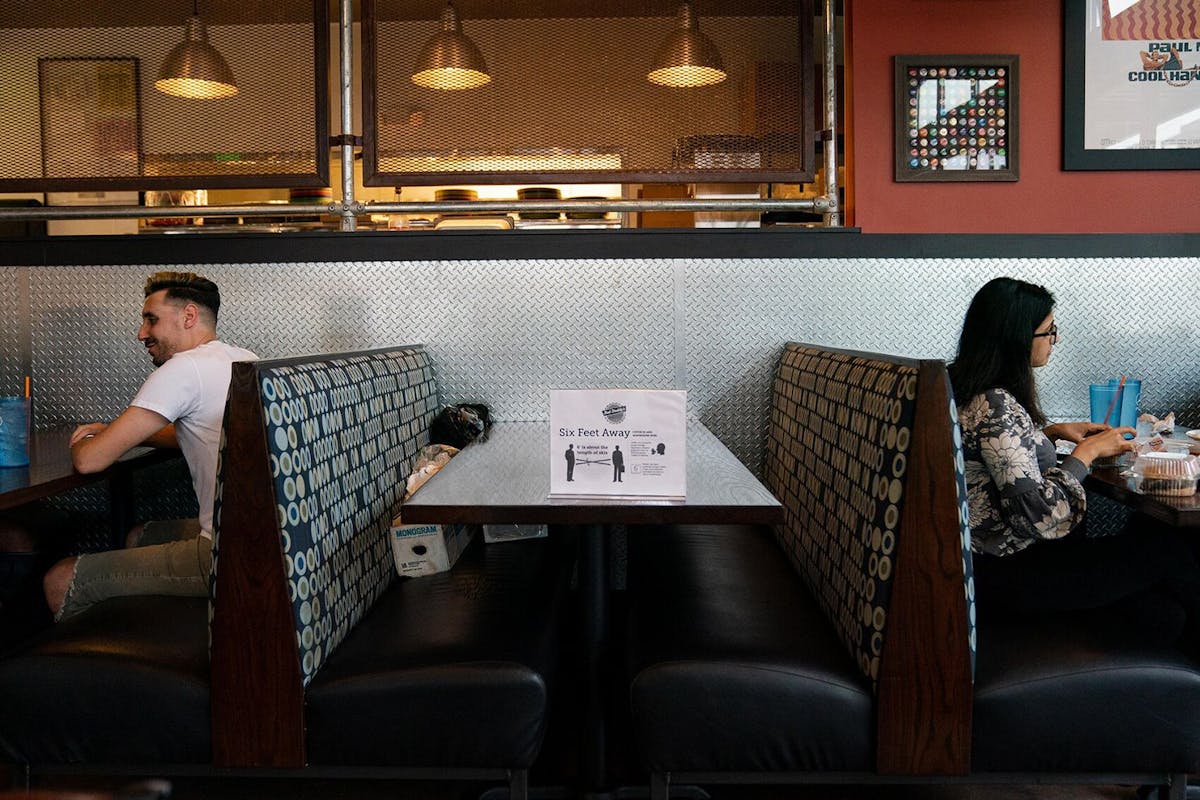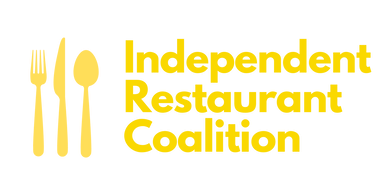August 6 – 50% Seating Capacity Not Enough for Independent Restaurants to Reopen and Stay Open; Over Four in Five Restaurants Looking for Information on Financial Relief in Order to Reopen

FOR IMMEDIATE RELEASE
August 6, 2020
CONTACT:
Jeff Solnet
jeff@precisionstrategies.com
50% Seating Capacity Not Enough for Independent Restaurants to Reopen and Stay Open; Over Four in Five Restaurants Looking for Information on Financial Relief in Order to Reopen
Nearly 75% of Independent Restaurants Reported Taking on New Debt Obligations Over $50,000 in May
Three in Five Restaurants Need Additional Funding for Fixed Costs and Payroll to Fully Reopen and Stay Open, According to New Data from James Beard Foundation
WASHINGTON, D.C. – Today, the James Beard Foundation, in collaboration with the Independent Restaurant Coalition (IRC), released a new batch of survey data on the state of the United States’ independent restaurants and bars, painting a dark picture of a beleaguered industry as the pandemic enters its sixth month.
In surveys of independent restaurants and bars taken in May and July, owners and workers were asked about their current operational procedures, the challenges they face in staying open, and their outlook for the future. The results revealed independent bars and restaurants had, on average, just 66% confidence they could stay operational through October. In May, nearly 75% of independent restaurants reported taking on new debt obligations of over $50,000, with over 12% reporting obligations over $500,000. Additionally, independent restaurants reported that the 50% seating capacity mandated in several states and localities would not be enough to stay open: they need nearly 60% seating capacity on average in order to stay open permanently.
“The restaurant industry is being hit by a multitude of forces,” said Clare Reichenbach, CEO of the James Beard Foundation. “Inconsistent information about COVID-19 health and safety protocols and a lack of sufficient financial support are endangering the entire industry, but especially small, independent operators. Even if these small businesses are able to overcome the massive financial burden of reopening, many are afraid they won’t see enough customers at their tables to fully support their operations. On top of that, states have been reclosing restaurants and bars at the direction of the federal government, leaving unexpecting restaurateurs in a lurch. It’s no wonder that owner confidence is waning 5 months into this pandemic with no relief in sight.”
“Behind every data point on this survey is an American small business owner,” said Andrew Zimmern, a founding member of the Independent Restaurant Coalition, host of James Beard award-winning What’s Eating America and Bizarre Foods, and partner at Lucky Cricket and several other restaurants in Minneapolis. “These small business owners support local suppliers, hire people in their communities, and build the places where friends and family come together. The results of this survey simply confirm what we’ve been fearing: the longer this pandemic goes on, the more of these cultural and economic bastions we are going to lose forever. Someday, in the future, we are all going to be able to safely take off our masks and get together again. If Congress doesn’t act now, we will lose the very places where we would celebrate that day.”
Topline findings of the survey include:
- Restaurants Not Confident in Surviving Through October – In July, owners expressed just 66% confidence they would still be open through October. In May, despite 92% of respondents having received PPP loans, business owners expressed only 60% confidence they could survive the crisis.
- Independent Restaurants and Bars are Taking on Extraordinary New Debt – Nearly 75% of independent restaurants reported taking on new debt obligations over $50,000 in May.
- Seating Capacity Needs Surpass Many State Restrictions – In July, owners reported needing nearly 60% capacity, at a minimum, to make reopening work for them financially. This follows a similar result from May’s survey, indicating that the 50% and 25% capacity limits imposed by several states and localities does not work for independent bars and restaurants.
- Restaurants are Concerned about the Return of Customers – 39% of respondents indicated consumer fears about COVID-19 transmission among their top three concerns about reopening.
- Owners Cite Unpredictability as a Top Concern for Reopening – Nearly 36% of respondents rank unpredictable state guidelines for operating among their top three concerns regarding reopening.
- Restaurants Struggle to Cover Basic Costs -- In May, 69% of restaurants named rent and payroll as their biggest, most immediate cash challenge. In July, 52% of respondents indicated relief for new PPE expenses, rent, mortgage, payroll, staff benefits, and vendor expenses as their top priority.
- Restaurants Overwhelmingly Cite Health and Safety of Staff and Customers as a Top Priority – Looking ahead at reopening, restaurants cited the health and safety of employees and customers was their top concern in July. At the same time, customer behavior was a growing concern – 27% of respondents listed it among their top three worries for reopening. Owners cited customers not wearing masks (82%), not social distancing in common areas (71%), potential conflict over safety with customers (71%), and staff mistreatment (65%) as top concerns around customer behavior.
The James Beard Foundation fields a monthly survey around COVID-19. This report covers surveys fielded May 19-29, 2020, and July 14-28, 2020. The total number of respondents for the two surveys was 2,107. Respondents were 51% male and 46% female; 76% of respondents identified as white or caucasian.
“If small restaurants around the country close, elected representatives won’t be able to say they didn’t know what was at stake,” said Ouita Michel, owner or Ouita Michel’s Family of Restaurants, which operates several restaurants in central Kentucky. “We’ve been clear about what we need. The findings of the James Beard Foundation’s survey are clear about what we need. As a taxpayer and as a small business owner, I need Congress to fight for me and the millions of others who are doing their duty to stop the spread of this virus, but don’t want to lose the small businesses they’ve spent years and years building.”
“It’s hard to be hopeful for an industry when you’re losing confidence,” said Nina Compton, IRC leadership team member and owner of Bywater American Bistro and Compère Lapin in New Orleans, LA. “I am hopeful for this industry. But we’re barely holding on here – and hope alone doesn’t pay our bills. But knowing our restaurants will have the resources we need to stay closed until this pandemic ends is invaluable. It would reassure our workers and keep them paid. It would help us maintain business relationships with our suppliers. Congress needs to give us real hope by passing the RESTAURANTS Act.”
More than 1 in 4 workers who have lost their jobs during the pandemic are from the restaurant industry, more than any other industry. Last week, the Department of Commerce reported that restaurants lost over 34% of revenue in Q2 of this year. A new analysis from restaurant consultants Aaron Allen & Associates predicts one in three U.S. restaurants may close permanently this year. Neither the HEALS Act being debated in the Senate nor HEROES Act passed by the House of Representatives in April includes direct aid specifically for independent bars and restaurants.
Earlier this week, the Independent Restaurant Coalition (IRC) released a new television ad with support from Morgan Freeman and DoorDash calling on Congress to pass the RESTAURANTS Act. The ad, narrated by Freeman and produced by Andrew Zimmern’s Emmy-Winning production company Intuitive Content, has received widespread engagement online and will air in several states across the country. The RESTAURANTS Act calls for the establishment of a $120 billion grant program run by the U.S. Treasury that small restaurants, bars, food trucks, caterers, and other similar establishments can use to cover various operating costs, including payroll, rent, mortgages, supplies, and PPE. Grant amounts are determined by comparing revenue from 2019 to revenue in 2020, and funds do not need to be repaid.
In July, several major U.S. corporations including American Express, The Coca-Cola Company, Delta Air Lines, Hyatt Hotels, Resy, Sysco, and US Foods along with over 215 farmers, distributors, distillers, and other businesses announced their support for the RESTAURANTS Act. According to a recent economic report from Compass Lexecon, restaurants’ and bars’ suppliers employ over five million workers across the country.
The Independent Restaurant Coalition was formed by chefs and independent restaurant owners across the country who have built a grassroots movement to secure vital protections for the nation’s 500,000 independent restaurants and the more than 11 million restaurant workers impacted by the coronavirus pandemic. The Coalition’s leadership team includes Tyler Akin, José Andrés, Kevin Boehm, Sean Brock, Katie Button, Andrew Carmellini, Ashley Christensen, Jeanie Chunn, Amanda Cohen, Tom Colicchio, Nina Compton, Rosa Garcia, Suzanne Goin, Gregory Gourdet, Will Guidara, Mason Hereford, Sam Kass, Max Katzenberg, Mike Lata, Camilla Marcus, Ivy Mix, Kwame Onwuachi, Patrick Phelan, Erika Polmar, Naomi Pomeroy, Steven Satterfield, Michael Shemtov, Nancy Silverton, Frank Stitt, Bobby Stuckey, Robert St. John, Caroline Styne, Jill Tyler, and Andrew Zimmern.
# # #

